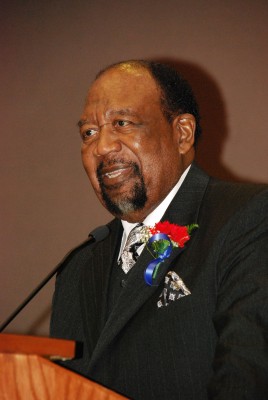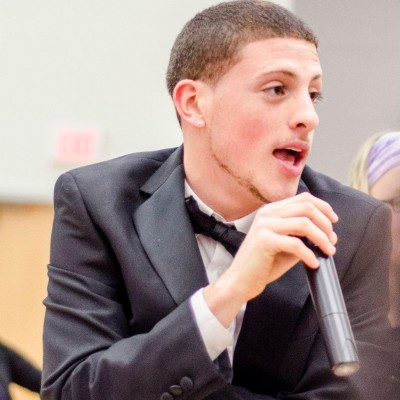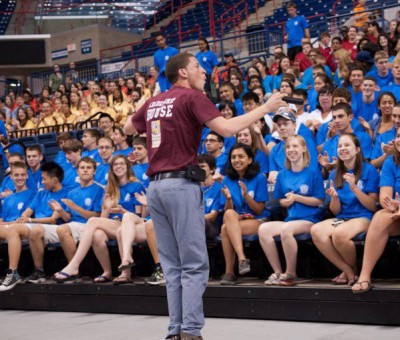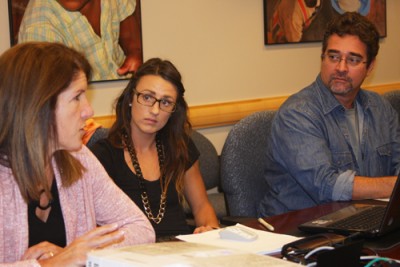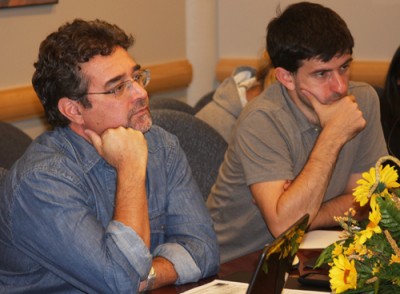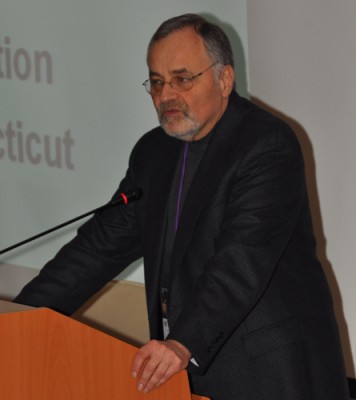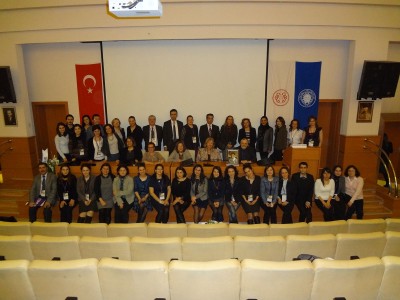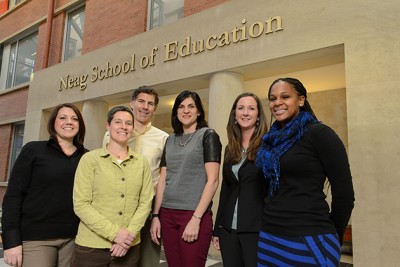
The enormous challenge of closing the gap between successful, high-performing students and the often multi-challenged, low-performing ones won’t be overcome by one, large sweeping change, but many small, effective, and strategic ones.
“We’re excited and determined to discover the smallest changes that can have the greatest and most durable results,” said the Neag School of Education’s Center for Behavioral Education & Research Director George Sugai, PhD. He coordinates the newly formed research group charged with identifying achievable, evidence-based strategies and practices that schools can use to help underachieving students succeed.
The “we” Sugai refers to are six faculty members working together to conduct the research which will specify best practices, and inform professional development, technical assistance, and consultation. All six are new faculty who’ve come to UConn as part of the University’s ambitious cluster hiring plan, which brought 18 new professors to the Neag School to both teach and work in teams, or “clusters,” to perform the research needed to solve problems critical to the future of education.
With a focus on research and evaluation, this team has named itself the “Collaborative on Strategic Education Reform,” and has initiated efforts, for example, related to cultural equity, school climate, teacher and administrator evaluations, professional development and accountability, English language learners and teacher quality, and teaching incentives and personnel preparation.
“In Connecticut and throughout the nation, finding ways to help low-achieving students catch up to their peers has been a persistent and resistant problem for many decades,” said Sugai, a Special Education professor and UConn’s Carole J. Neag Endowed Chair. “What’s extremely unique and exciting is that UConn has invested in some of the United States’ best and brightest young educational researchers, who will attack this problem in a collaborative manner but from multiple perspectives.
“Our focus won’t necessarily be to discover new practices,” Sugai continued, “because I think most experts already agree on what changes need to happen for improved learning to occur. Our focus will be on how best practices can best be implemented—how we can not just get practices to teachers, but ensure educators have the systems and supports they need to accurately and consistently implement them.”
Representing three departments—Curriculum and Instruction, Educational Psychology and Educational Leadership—and meeting weekly since late summer, the Neag faculty come from a wide range of backgrounds and bring research and applied expertise in school success and student achievement. In addition to Sugai, they include:
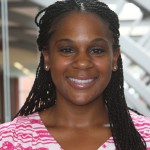 Assistant Professor of School Psychology Tamika La Salle, whose previous research efforts on the effects of culture and school climate were at least partly inspired by her own school years: “I was a military brat, which means I moved around a lot and had to adjust to several different school settings throughout grade school. Having a positive school climate, and making connections based on both cultural differences and similarities, really made a difference in the experiences I had in school,” said LaSalle, a former educational consultant in Mississippi and Pennsylvania. “I want to affect research and practice aimed at making schools culturally responsive environments that seek to promote positive social, behavioral and academic outcomes for all students.”
Assistant Professor of School Psychology Tamika La Salle, whose previous research efforts on the effects of culture and school climate were at least partly inspired by her own school years: “I was a military brat, which means I moved around a lot and had to adjust to several different school settings throughout grade school. Having a positive school climate, and making connections based on both cultural differences and similarities, really made a difference in the experiences I had in school,” said LaSalle, a former educational consultant in Mississippi and Pennsylvania. “I want to affect research and practice aimed at making schools culturally responsive environments that seek to promote positive social, behavioral and academic outcomes for all students.”
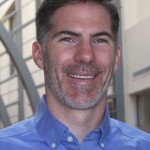 Assistant Professor of Educational Leadership & Policy Shaun Dougherty, who’s currently conducting an in-depth follow-up study on how quick, personalized communications with parents and student can lead to greater classroom achievement. “It’s a proactive approach that requires a slightly larger investment of up-front time by the teacher, but that pays off in the long run,” said the former Harvard Graduate School of Education Center for Education Policy Research fellow. His focus and interests include analyzing how data systems can be used to create best practices and policies.
Assistant Professor of Educational Leadership & Policy Shaun Dougherty, who’s currently conducting an in-depth follow-up study on how quick, personalized communications with parents and student can lead to greater classroom achievement. “It’s a proactive approach that requires a slightly larger investment of up-front time by the teacher, but that pays off in the long run,” said the former Harvard Graduate School of Education Center for Education Policy Research fellow. His focus and interests include analyzing how data systems can be used to create best practices and policies.
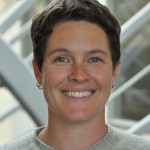 Assistant Professor of Special Education Jennifer Freeman, who as a former consultant and elementary and middle school teacher fought for students to have equal opportunities and access to a meaningful education. “I often ran into situations where we had a pretty good idea what interventions or practices might help a student, but school or state barriers affected how well they could be implemented. To ensure all students really do have equal access and opportunities in schools, we need to better understand how to support school systems to develop strategic reform plans that build on what schools do well and remove the barriers that prevent teachers from being able to help all students reach their full potential.”
Assistant Professor of Special Education Jennifer Freeman, who as a former consultant and elementary and middle school teacher fought for students to have equal opportunities and access to a meaningful education. “I often ran into situations where we had a pretty good idea what interventions or practices might help a student, but school or state barriers affected how well they could be implemented. To ensure all students really do have equal access and opportunities in schools, we need to better understand how to support school systems to develop strategic reform plans that build on what schools do well and remove the barriers that prevent teachers from being able to help all students reach their full potential.”
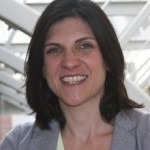 Assistant Professor of Educational Leadership Jennie Weiner, who most recently served as a Boston University School of Education adjunct and Prescott College doctoral mentor. “So much of the rhetoric around educational reform focuses on finding a source of blame for current outcomes— blaming students, blaming families, blaming teachers. However, research tells us that rather than there being a few ‘bad apples,’ the real source of underperformance comes from systematic issues of inequity, particularly as they relate to teachers knowledge, skills and abilities to provide the best learning opportunities for all kids,” said Weiner, a former senior research associate for the Milken Family Foundation’s Teacher Advancement Program. “Taking an interdisciplinary and strategic approach to research will allow us to support a new and more effective way of engaging in reform that helps exploit current—though often latent—strengths to maximize both educators’ and students’ potential.”
Assistant Professor of Educational Leadership Jennie Weiner, who most recently served as a Boston University School of Education adjunct and Prescott College doctoral mentor. “So much of the rhetoric around educational reform focuses on finding a source of blame for current outcomes— blaming students, blaming families, blaming teachers. However, research tells us that rather than there being a few ‘bad apples,’ the real source of underperformance comes from systematic issues of inequity, particularly as they relate to teachers knowledge, skills and abilities to provide the best learning opportunities for all kids,” said Weiner, a former senior research associate for the Milken Family Foundation’s Teacher Advancement Program. “Taking an interdisciplinary and strategic approach to research will allow us to support a new and more effective way of engaging in reform that helps exploit current—though often latent—strengths to maximize both educators’ and students’ potential.”
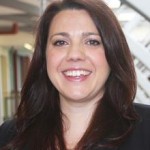 Assistant Professor of Educational Psychology Bianca Montrosse-Moorhead, whose work has included advancing educators’ understanding of the impact of K-12 policies, practices and programs in chronically under-performing and under-served schools. “My passion, drive, and desire to be a part of this work comes from a deeply held belief in educational equity, a concept rooted in both the idea of fairness and the right for everyone to have access to a free and appropriate public education,” said Montrosse-Moorhead, formerly an assistant professor of educational research at Western Carolina University. “My excitement about the work of this group is that we are drawing on our individual strengths, as well as the strengths of those that we are and will collaborate with, to really figure out how we can best meet the educational needs of all kids.”
Assistant Professor of Educational Psychology Bianca Montrosse-Moorhead, whose work has included advancing educators’ understanding of the impact of K-12 policies, practices and programs in chronically under-performing and under-served schools. “My passion, drive, and desire to be a part of this work comes from a deeply held belief in educational equity, a concept rooted in both the idea of fairness and the right for everyone to have access to a free and appropriate public education,” said Montrosse-Moorhead, formerly an assistant professor of educational research at Western Carolina University. “My excitement about the work of this group is that we are drawing on our individual strengths, as well as the strengths of those that we are and will collaborate with, to really figure out how we can best meet the educational needs of all kids.”
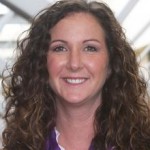 Assistant Professor of Special Education and Literacy Hannah Dostal, who bring extensive leadership experience as a professor, writing intervention coordinator and special education consultant. Her background includes serving as an instructional consultant for the American School for the Deaf and teacher at the Tennessee School for the Deaf. “As a former teacher, I am intimately aware of the power and possibility of quality instruction, as well as the layers of barriers that face traditionally underperforming populations,” Dostal said. “As a researcher, my commitment to equity is grounded in my belief in every child’s potential to develop powerful literacies and a desire to understand and remove barriers to the full expression of that potential.”
Assistant Professor of Special Education and Literacy Hannah Dostal, who bring extensive leadership experience as a professor, writing intervention coordinator and special education consultant. Her background includes serving as an instructional consultant for the American School for the Deaf and teacher at the Tennessee School for the Deaf. “As a former teacher, I am intimately aware of the power and possibility of quality instruction, as well as the layers of barriers that face traditionally underperforming populations,” Dostal said. “As a researcher, my commitment to equity is grounded in my belief in every child’s potential to develop powerful literacies and a desire to understand and remove barriers to the full expression of that potential.”
Sugai, who came to UConn from the University of Oregon in 2005, said he is excited to work with these “curious, motivated” professionals, all of whom are passionate about making a difference for students in Connecticut and throughout the nation.
“How can we provide powerful, strategic practices that schools and districts can use to create durable change,” asked Sugai, adding that one of the group’s immediate projects is to create a one- to five-year action plan that maps the studies they conduct, the grants they’ll pursue, and how they’ll then present research findings. Their current course is to complete at least three studies this first year.
“Much work was being done behind the scenes by Neag Dean Thomas DeFranco and others so that buckets of opportunities were ready to be explored as soon as the teams were assembled,” Sugai added. “Sooner, rather than later, we want to be able to tell schools ‘Here are some of the most effective and relevant things you can do, and here are how they can best be implemented.’ Our research will be designed to document, demonstrate, and disseminate what works, so students will benefit, exemplar policies will be developed, and school functioning will be more effective and efficient. We are excited about the possibilities and potential of this work.”

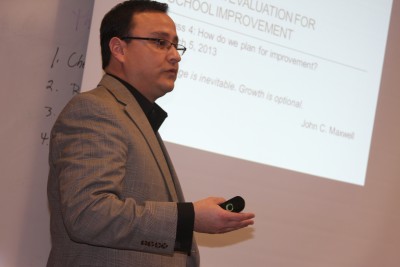

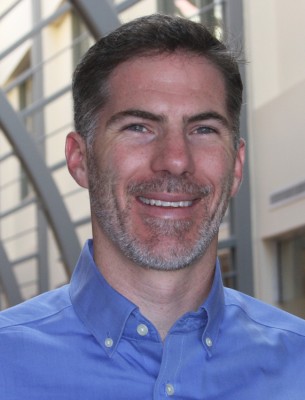
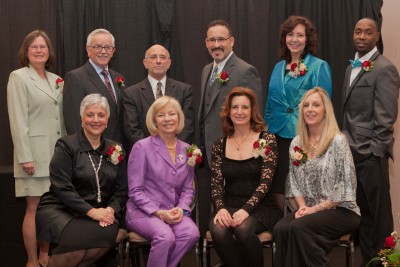 Do you know any outstanding Neag alumni? The Neag School of Education is seeking nominations for the annual Neag Alumni Society Awards. You are invited to nominate individuals for any of the eight prestigious awards. Click
Do you know any outstanding Neag alumni? The Neag School of Education is seeking nominations for the annual Neag Alumni Society Awards. You are invited to nominate individuals for any of the eight prestigious awards. Click 
